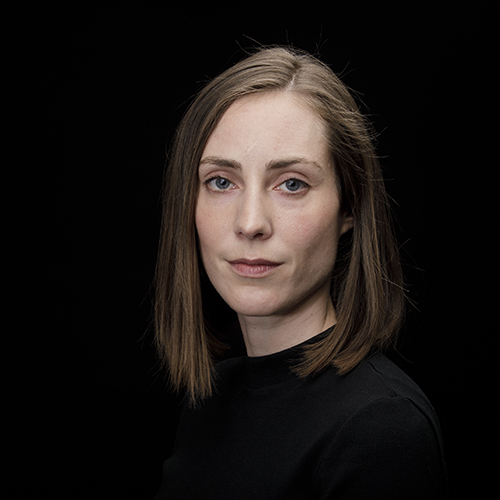
Emilie Magnin
- emilie.magnin@students.unibe.ch
- Postadresse
- Universität Bern
Graduate School of the Arts and Humanities (GSAH)
Doktoratsprogramm Studies in the Arts (SINTA)
Emilie Magnin
Muesmattstrasse 45
3012 Bern
Emilie Magnin
Emilie Magnin (born 1986) holds a master’s degree in Conservation-Restoration from the Bern University of the Arts with a specialization in modern materials and media. During her studies, her interest for contemporary art and curiosity towards the challenges of documenting and conserving intangible aspects of installed or performative artworks has led her to investigate the technical and ethical implications of preserving software-based installations. Her one year position as a Conservation Fellow at the Solomon R. Guggenheim Museum in New York in 2012 also encouraged her to specialize further in time-based media conservation and explore this area of research. Since her graduation, she has worked as a contemporary art conservator for a private practice in Bern, as a moving image conservator at the Swiss Archive of the Performing Arts and as a digital archivist for the audiovisual heritage collections at the Cantonal and University Library of Fribourg. She is also a coordinator of the specialized group for media and performing arts within the Swiss Association for Conservation and Restoration.
Today Emilie Magnin is part-time conservator for media art and installations at the Kunstmuseum Bern and she is pursuing a doctoral degree within the SNSF research project Performance: Conservation, Materiality, Knowledge conducted at the Research Institute Materiality in Art and Culture at the Bern University of the Arts. Her research interests lie in the institutional changes prompted by the increasing acquisition of performance-based artworks in museums, and in exploring the role of conservators in producing documentation and their influence over the future of performance-based artworks by looking at documentation as both a preservation action and product.
Supervisors
Prof. Dr. Noémie Etienne, Universität Bern, Institut für Kunstgeschichte
Prof. Dr. Hanna B. Hölling, Hochschule der Künste Bern HKB, Materiality in Art and Culture
Doctoral project
Performance : Conservation, Materiality, Knowledge
This dissertation project takes place within the Swiss National Science Foundation funded research project Performance : Conservation, Materiality, Knowledge at the Bern University of the Arts where I was appointed doctoral candidate. The first few months of my mandate – starting October 1, 2020 – will be devoted to developing the concrete formulation of my question, theories and methods. Nonetheless I can already outline some particular areas of research or theories that I intend to explore within the broader scope of this research project. Please also find below a prelimi-nary list of sources that I am reading and summarizing in preparation for the beginning of my doctoral program, as well as the complete description of the SNSF project.
Led by Prof. Dr. Hanna B. Hölling and situated within the Institute Materiality in Art and Culture, the research project itself focuses on the many questions raised by the conservation of performance-based artworks and their temporal specifics in relationship with traditional theories of conservation. With the help of practical case-studies, it aims to investigate and characterize emerging and new methods for conserving performance-based artworks and to expose the knowledge-generating process of conservation and its relations to discourses from adjacent fields of research such as performance studies, anthropology, aesthetics and art history.
Coming from the field of time-based media conservation, I am particularly interested in investigating how time-based media conservation strategies can be applied to the conservation and documentation of performance-based art. Whether being intrinsic to performance or the production of conservation actions, audiovisual components such
as video files are becoming increasingly entangled with performance-based artworks and I find these particular dependencies extremely interesting as they encourage a collaborative approach. When it comes to performance, the transmission of knowledge is often permitted by documentation and therefore it is the conservator’s responsibility not only to compile or produce this documentation, but also to establish appropriate archiving procedures, especially for audiovisual materials that are prone to rapid obsolescence.
I am also interested in exploring the shifting role of contemporary art conservators within an institutional context and their influence over the future of performance-based artworks collected within these institutions. Gaining awareness of their own influence over the course of an artwork’s lifetime is leading conservators to perform all conservative actions in an informed and sensitive manner and to communicate openly about their actions. The new methods and strategies required to acknowledge of the conservators’ own subjectivity and to contextualize the decision-making process that led to specific conservation decisions are often inspired by adjacent disciplines and can foster synergies that I am hoping to develop within the scope of my future research.
Research priorities
Performance art, interdisciplinarity, decision-making analysis, anthropology, conservation theory, conservation-restora-tion practices, performance studies, art history, aesthetics, new materialism
